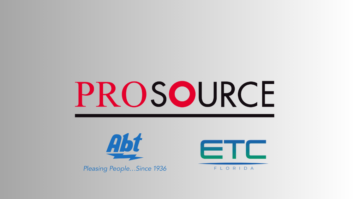WASHINGTON, D.C. -If you didn’t get enough courtroom drama in Y2K, rest assured there will be more than enough to occupy your time in the year to come, as legislators, regulators and judges will continue to consider issues that are central to the future of the consumer electronics industry.
The battle promises to be fierce, with the Consumer Electronics Association in the thick of the fight to protect consumer and manufacturer rights that were secured in the analog age.
Last year, CEA president Gary Shapiro said that the creative community “will be on the warpath” in Congress and the courts in 2001. “Content providers want a pay-per-play world,” Shapiro said, and 2001 is going to be a crucial year.
CEA is working to convince lawmakers and courts that “every download does not mean a lost sale,” he said. In fact, history shows that digital technology builds sales, it doesn’t hinder sales, Shapiro said, and CEA is planning activities this year to promote consumer awareness that the “play” button should not become a “pay” button.
In some ways the activity last year served as a prelude to the intense action we’re likely to see this year. 2000 began, of course, with trepidation, but the oft-predicted Y2K bug didn’t materialize. Nevertheless, a constellation of issues surrounding the digital transition required the efforts of CEA’s Government and Legal Affairs Division throughout the year.
Issues involving digital television cable compatibility, e-commerce, copyright protection, Internet taxation, “teleworking” and the prospect of a “digital divide” were considered in the nation’s capital and in state houses across the country.
In May, Shapiro joined with presidents of 10 other trade associations to urge Congress “to address the issues surrounding Internet taxation in as comprehensive a manner as possible.” The executives said that comprehensive strategy should include:
- An extension of the moratorium of the Internet Tax Fairness Act and the elimination of taxes on Internet access.
- Creation of an environment in which true simplification of interstate sales and use taxation may occur.
- Reduction of costly litigation between taxpayers and government by clarifying existing rules regarding taxable presence.
- And elimination of Federal Telecommunications Excise Tax and creation of an environment for the simplification of telecommunications taxes.
CEA has also been pushing to complete final standards for cable-compatible digital televisions in the face of less aggressive efforts on the part of the cable industry.
In a December status report regarding agreements between the two industries, CEA told the Federal Communications Commission that manufacturers are unable to build cable-compatible digital television receivers because of incomplete cable-industry standards. According to CEA, the cable industry had yet to complete a number of essential standards, including that for the “POD-host interface.” The point-of-deployment security module (POD) allows consumers to access cable services without the use of a set-top box, using a security card supplied by their cable provider.
CEA also expressed concerns about the cable industry’s implementation of its February commitment regarding provision of program system information protocol (PSIP) data. PSIP information is necessary to allow for the operation of electronic program guides (EPGs) and channel-tuning features built into television receivers.
CEA urged the FCC to promote an interindustry standards process and set firm time lines for cable’s completion of specifications necessary for interoperability. CEA also asked the FCC to incorporate the completed compatibility standards into its rules.
In September, the FCC had adopted labels for three types of DTV sets compatible with cable systems and ruled that copy-protection technology licenses could be required for cable set-top boxes.
At that time Shapiro said, ” We are pleased that the commission in its actions today appears to recognize that consumers maintain reasonable home recording rights in the digital age. We maintain, however, that the FCC has no legal authority to grant CableLabs permission to mandate copy-protection schemes.
This initiative is part of CEA’s ongoing attempts to spur sales of digital television and high-definition television (HDTV).
Earlier in the year, Shapiro told Congress that broadcast-industry delays in delivering significant HDTV programming and its use of the DTV spectrum to provide subscription data services could put the transition’s current momentum at risk.
“There’s no doubt that after 10 years of research and development,” he said, “the consumer electronics industry has upheld its end of the bargain by making a wide selection of digital tele-
vision products available at retail.
“Having received their public spectrum, we believe that all broadcasters now have the obligation of keeping their end of the bargain. Broadcaster decisions to use the spectrum primarily for services other than delivering free over-the-air television abrogate the agreement with Congress and deny the public trust. If we interrupt the public’s confidence in the DTV transition, it may take years to recover.”
Digital music distribution raises some of the most nettlesome issues for the CE industry, and CEA weighed in on several fronts, including filing a friend-of-the-court brief in the Napster case. In this instance, CEA argued that the district court in Northern California had misapplied the Sony Betamax case in its decision to enjoin Napster from pursuing its file-sharing business enterprise.
Again, CEA was seeking to protect the rights of consumers to make copies, fairly, of copyrighted material, and of manufacturers to produce devices that make digital copies.
Since last winter, CEA has encouraged states to enact sales-tax holidays for technology equipment as a means to narrow the digital divide. In August, Pennsylvania and South Carolina were the first states to apply the popular tax-relief measure to high-tech products. At least five other states have some kind of sales-tax holiday, frequently scheduled in August before the start of the school year.
“Sales-tax holidays are not a new idea, but applying the concept to the digital economy is,” explained Doug Johnson, CEA director of technology policy. “This is a way for states to encourage their residents to embrace technology.”
A CEA survey found that 27 percent of families with household incomes of less than $25,000 would be more likely to buy a home computer if they did not have to pay sales tax.
This year there will be another wrinkle in the relationship between CEA and the United States Congress: At least one member of Congress will have intimate knowledge of the consumer electronics industry and its issues.
Darrel Issa, CEA’s chairman of the board, was elected to Congress in November, representing California’s 48th district. Issa, a Republican, is believed to be the first sitting chairman of a major trade association elected to Congress.












